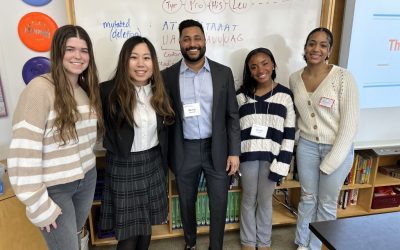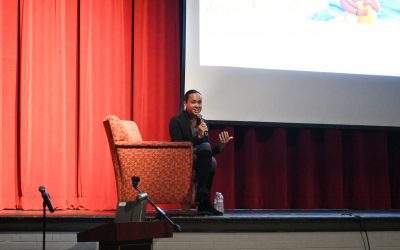Exploring the Tech Sector
More and more Moorestown Friends School alumni are carving out careers in the tech sector, an area of endeavor that is continuously posing new ethical challenges. “We hope that the way we encourage students to be attentive to their moral compasses throughout their years at MFS will help them navigate the amazing world of technology,” said Associate Head of School and Academic Dean Meredith Godley. “They will face unimaginable questions, relating to everything from cybersecurity to privacy to artificial intelligence and beyond.”
Macalester College Professor Diane Michelfelder ’71 is a world-renowned pioneer in the intersection of modern technology and ethics. A special focus of her work is on ethical issues related to Internet-embedded design. A past president of the Society for Philosophy and Technology, she is an alumna of Bryn Mawr College with a doctorate from the University of Texas at Austin.
We asked Dr. Michelfelder to reflect on the questions that face this generation as they take leadership in a rapidly transforming landscape, and how Quaker values might be brought to bear on digital ethics. Following her piece, enjoy reading profiles of five alumni in the heart of the tech sector.
Introduction from Diane Michelfelder ’71
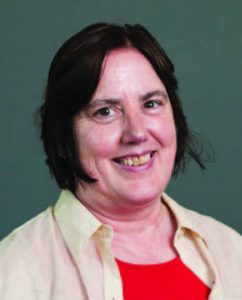 St. Paul, MN
St. Paul, MN- Professor of Philosophy, Macalester College
- Ph.D., The University of Texas at Austin
- A.B., Bryn Mawr College
I’ve taught Digital Ethics under different names and with different content for over three decades now; it never grows old because there is always something new to learn and new technologies to think about with an eye to their ethical impacts. When I first started teaching this course while a member of the philosophy department at Cal Poly, there were only a handful of university courses on the topic. The fact that I was teaching a course in the ethics of the Internet prompted one website to dub me as a “CyberEthics pioneer.”
Back then, the questions my students and I talked about largely had to do with the impact of the Internet on issues connected to U.S. rights: freedom of expression, privacy, intellectual property, etc. The course assumed an Internet user was sitting at a desk looking into a monitor. If we fast-forward to 2021, we find that the Internet user has been transformed into a mobile-device connected subject, and that the Digital Ethics syllabus is bursting with an abundance of new issues to consider and debate: dataveillance; algorithmic transparency, fairness and justice; the responsibilities of social media companies with regard to platform content moderation; and ethical issues involving wearable computers, robotics, self-driving cars, and “smart” cities. These topics reflect a much different world from the previous world in which the idioms of “cyberspace” and “the new frontier” were common parlance. In the contemporary digital world, often even the experts don’t always know how things work, and our attention is tempted to stop at the exciting services Internet-enabled digital devices provide us (think Siri or Fitbit), rather than wondering what is going on behind the scenes and how many actors are gathering information about us.
Right now, there is a huge need for tech industry workers who can advocate for the protection of human rights in this environment and push for changes so that the vectors of digital development shift more toward uplifting our collective flourishing and well-being. Such work, aimed beyond Google’s unofficial motto “do no evil” to genuinely trying in the Quakerinspired way to improve our life in common with others so that we all could flourish, could be done in a variety of roles: machine learning engineer, design ethicist, data scientist; AI (artificial intelligence) ethics researcher, chief ethics officer, and the like. When I advise my students double-majoring in philosophy and computer science, I stress how they are preparing themselves well for future employment.
More and more tech companies are recognizing for instance that the algorithms they develop are not value-neutral but can contain direct or proxy biases that lead to unjust outcomes for members of underrepresented groups. They are recognizing that it can be more efficient to deliberately design user-centered values into products at the development stage rather than inventing new products for invention’s sake alone and releasing them quickly onto the market even if there isn’t a specific need for them (think flying taxis, for example). They are recognizing that users might value the privacy of their personal information higher than they (the companies) anticipated. Of course, when some companies tout their interests in ethics it is more for the sake of show than of substance. But “ethics washing” may be on the wane as public awareness of and pushback against it grows. Just to take one example, until this year, a significant part of an applicant’s score, when interviewed by a business using HireVue, came from analyzing their “facial action units.” Faced with increasing criticism that this feature could lead to biased hiring outcomes, it was suddenly dropped.
Finally, when I think of how Quaker values are supportive of digital ethics, there is also a place for the Quaker value of simplicity in engineering design. Within the process of engineering, validation – Is this the right solution to a problem? – comes before verification – Is the solution designed in the right way? One of the first factors to be considered in validation is not whether a particular potential engineered solution is preferable to other possible engineered solutions, but whether the problem requires an engineered solution in the first place. It might require something much less complex and which would be more supportive of equality, also a key value of a Quaker education.
Gabe Hege ’12
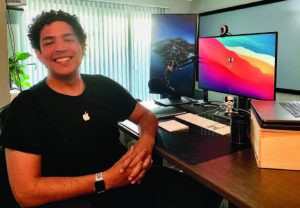 Pacifica, CA
Pacifica, CA- Senior Software Engineer at Apple
- B.S. and M.Eng. in Electrical Engineering and Computer
Science, Massachusetts Institute of Technology
Gabe’s work in his own words…
I currently am technical lead for three development teams building an internal software product for Apple Cloud Services. The team’s disciplines are Front End, Data Services, and Operations. Together they provide core functionality that empower Apple’s developers to build great new features for Apple services.
My day-to-day work involves a lot of context switching and solving problems between various domains. I work with software architects and product designers to craft new features for the future of the product. Some days, I jump in to solve problems for any of the Front End, Data Services, or Operations teams as necessary.
The most exciting part of the work is interacting with different people with a wide range of skills and backgrounds solving difficult technical problems which energizes me every day.
Apple is committed to doing the right thing. The challenge can be knowing what’s right and when to act. In my day-to-day life, when working with teams of people from different parts of the globe, what is “right” may look and sound different depending on where you’re from. This involves a continuous dialogue to understand and resolve conflicts.
Advice to recent grads looking to enter the tech industry…
The landscape changes rapidly which means tools can change rapidly with it. Especially in the tech industry, focus on the fundamentals in your field. Even when the tools change, the fundamentals do not change. Try not to get bogged down in what’s new for newness sake, instead look for where technology is fundamentally going. That has helped to keep me grounded.
Along with that, I like to remind recent graduates that it’s okay to not know exactly what you want to do. Getting exposure to different technical areas and even learning what you do not enjoy is invaluable.
Valuable skills and competencies in your role…
Critical thinking and “learning how to learn,” being able to boil down abstract questions into simpler problems that can be solved systematically. New technologies come and go, and having to adopt them for a project only to drop it for a new technology
has become the norm. Once I came to terms with that reality, work life became a lot easier.
Reflecting on MFS…
Moorestown Friends School has provided me with the tools to manage a dynamic team of engineers and communicate with various levels of management. Most importantly, MFS taught me effective conflict resolution. I would like to think there is an element of Quaker values applied to my management style and I owe that to my MFS education.
The most influential moments in my technical development happened through MFS Robotics. Not only did it provide me time to practice coding, and solving problems under time constraints, I also learned how to effectively collaborate on a technical team. Little did I know how well Robotics would prepare me for the future.
“I would like to think there is an element of Quaker values applied to my management style and I owe that to my MFS education.”
Lydia Smith ’09
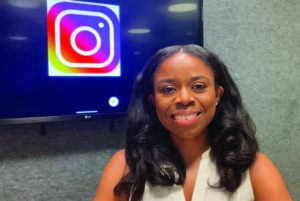 San Francisco, CA
San Francisco, CA- Project Manager, Product Data Operations at Facebook
- Master of Engineering in Industrial Engineering and Operations Research from University of California, Berkeley
- B.S. in Engineering Science, Vanderbilt University
Lydia’s work in her own words…
As part of the data operations team, I collect, interpret, and analyze large sets of data to surface actionable insights that help drive product development at Facebook.
My job begins by setting up data pipelines for which I often partner with external vendors. Once these pipelines are well-established and I am able to collect data, I use analytics (statistics, modeling, programming) to identify any meaningful trends or patterns. If I notice a potential problem, I investigate it further by searching for possible causes, overall impact, and ultimately a solution. When daily operations are running smoothly, I can shift focus to my team’s long-term initiatives which are optimization and automation.
The most exciting part of my work is being a consumer of the products that I work on. I joined Facebook as an MFS student at the behest of a friend, and before long I was connecting with cousins on the other side of the country and old neighbors. And today, to see how Instagram has evolved into an amazing platform where content creators can demonstrate their artistry and build businesses is really rewarding.
I also like how current/real-time my work is. On a regular day, I come into work, grab coffee, and then scour the news for anything that could affect my work for that day: elections, international summits, viral memes…if it is breaking news there’s
a good chance it will come up at work.
Advice to recent grads looking to enter the tech industry…
Network in a way that’s comfortable for you. As an introvert, I used to find networking terrifying, but after spending time in the Bay Area I realized it can be done in a very fun, organic manner. My first job came as a referral from a classmate at Berkeley with whom I would work on homework and talk about movies. And once I joined, I met more people at the company by playing ping pong (poorly).
The second tip would be to continue polishing your skills while taking an interest in new ones. Tech is a fast-moving industry, with some tools and solutions often proving to be ephemeral. By reading article
s/digests or attending a seminar, you can stay informed on what’s happening in your field.
Valuable skills and competencies in your role…
The key competency that has served me well is being able to effectively communicate my ideas/recommendations. After I complete my analyses, I often present my findings to a larger audience using data visualization software. To be able to convey in seconds, a result that may have taken you hours to reach is an asset that will allow you to have greater influence and impact.
Also, living in the Bay Area has served me immensely in my career thus far. Silicon Valley is the breeding ground for disruptive innovation and technology, and to have easy access to the companies at the forefront of this effort has been invaluable.
Reflecting on MFS…
The rigorous curriculum at MFS instilled in me the confidence to pursue a career in STEM. After taking Calculus and Physics II, with (former Upper School Science Teacher) Mr. Tim Clarke, I felt capable, and that belief made all my future endeavors seem scalable.
The community at MFS also showed me how to hold myself accountable. I believe technology can improve our lives, but like most things it must be done responsibly. Working with people from all over the world has exposed me to many different viewpoints and perspectives. As I continue to learn and work in the tech space, accountability is what ties me to my core mission of creating a more equitable, accessible world.
One of my fondest memories of MFS was the knitting class I took with (former Arts Department Teacher) Mrs. (Margaret) Van Meter. A group of us would sit in her office listening to Jack Johnson, chatting, and creating works of arts with our hands. I felt weightless in those moments, and it really taught me the importance of creating tranquil spaces for myself which has been a blessing during quarantine.
I also loved spending time with (former Upper School English Teacher) Mr. (Paul) Shallers who had an ethereal reading voice and would loan me his personal books.
“The community at MFS showed me how to hold myself accountable… As I continue to learn and work in the tech space, accountability is what ties me to my core mission of creating a more equitable, accessible world.”
Karan Hiremath ’12
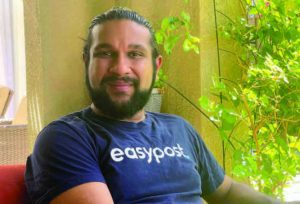 Los Angeles, CA
Los Angeles, CA- Data Engineer, Insights Team at EasyPost
- B.S in Engineering and B.S. in Economics, University of Pennsylvania
Karan’s work in his own words…
I am responsible for designing and maintaining a wide variety of data pipelines which are responsible for various financial reporting needs at EasyPost. These then input into pipelines take the form of internal aggregate reports which run every hour that extract an average of 1.5M transactions a day to near real-time data pipelines which handle transporting millions of records a day. These are the input into business intelligence tools such as Tableau and various in-house dashboarding and experimentation tools. Additionally, we have a number of pipelines running on a weekly or monthly cadence that are used to handle the process of invoicing and paying out millions of dollars to various customers and partners based on margin share, marketing incentive, or platform partner agreements. As our business has evolved and we develop new business models, my role has also evolved to support the needs of these new products as we validate their effectiveness in the market and build out the initial implementations within our infrastructure.
The most exciting part of my work is being able to work with an increasingly larger and more robust dataset which has the potential to provide extremely valuable insight into an area of the market which is dynamically changing in very fascinating ways. Especially since the beginning of the pandemic, we have seen an almost meteoric rise in the importance of the products and services which our customers and carrier integrations provide. From prescriptions being delivered to people’s doors from pharmacies to delivering critical personal protective equipment (PPE) to hospitals and other health centers, have EasyPost and our data has been working to help make sure that even in these ever-changing times, the ability to get the goods and services which people need is adapting to the “new normal.”
Advice to recent grads looking to enter the tech industry…
Data and technology are everywhere in the modern business world so any recent graduates will be entering what is now an ever-evolving workplace. To best prepare themselves, I would recommend that any entrant into this rapidly changing environment become familiar with the process of evaluating and adopting new technologies and technical solutions. Every piece of the workforce has been transformed and will continue to see radical innovation thanks to the adoption of technology, from Sales, Finance, Marketing, and HR in addition to the traditionally technology focused roles such as IT, R&D, and Product Development. Learning the different aspects of what makes a particular technology a better fit for solving a business need and being capable of adapting to the adoption of these new technologies will enable recent graduates to become powerful members of the workforce.
For recent graduates pursuing roles in the tech industry that are more traditionally involved in technology development, I would highly recommend taking the opportunity to learn about the various non-technical aspects of business development. At the end of the day, the best technologies are designed to solve problems, whether for consumers or for businesses, and understanding what goes into taking a technical solution and actually getting that solution into the hands of the market is critical to being an effective member of a technical team. Technology is seldom developed in a vacuum. It’s important to understand the various challenges that may occur at various points in the technical life cycle.
Valuable skills and competencies in your role…
As a data engineer, the understanding of database systems and the tradeoffs between the various database solutions which exist in the market has been critical to my career thus far. It has been important for me to understand the basic differences between different implementations of database systems at their core and I have also found it very important to understand the numerous challenges involved in running massive highly available databases at scale. Additionally, a deep understanding of the different types of data models and how they serve different purposes for online applications vs. data analytics is crucial. More recently, understanding different types of transport layers of data has been critical to being able to handle the large amounts of data being transferred between various services in the modern microservice driven architecture.
Reflecting on MFS…
At Moorestown Friends I was fortunate enough to have the chance to be exposed to various types of problem solving both in the classroom and outside of the classroom. From class assignments which required out-of-the-box thinking and collaboration to clubs and competitions which provided me with the opportunity to apply what I learned in unique ways, I was constantly being challenged to expand my knowledge and learn more. I am especially grateful for the well-rounded approach every teacher took to their curriculum and I found that the goal was always to impart a love of learning in addition to the fundamental knowledge required to be successful. If there is one thing that has served me the most in my career it has been the focus on self-reflection and improvement that Moorestown Friends taught me to engage in on a daily basis.
One of the most influential MFS experiences I had which has become more formative to my career has been my experiences learning the fundamentals of ethics and also engaging in extracurriculars like the Ethics Bowl. A topic of great discussion in the data industry recently has been the various ethical dilemmas which present themselves when dealing with personal information. From GDPR (General Data Protection Regulation) in Europe to California Consumer Privacy Act (CCPA) and other regulatory initiatives in the United States to the many public scandals regarding data privacy and data breaches, now more than ever it is critical to approach problems in this space with an ethical framework. The education I received from MFS has been extremely influential in how I approach these challenges every day and I am extremely grateful to MFS for providing me with the knowledge I need to be an ethical engineer.
“I am extremely grateful to MFS for providing me with the knowledge I need to be an ethical engineer.”
Dan Zeiberg ’14
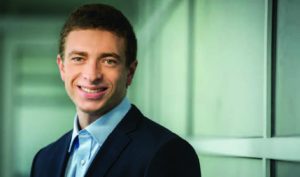 Boston, MA
Boston, MA- Computer Science Ph.D. Candidate, Northeastern University Khoury College of Computer Sciences
- B.S.E. in Computer Science, University of Michigan
Dan’s research in his own words…
My research focuses on the development of machine learning methods and their applications in bioinformatics. Currently, I’m working on leveraging the machine learning methods I develop to predict whether genetic mutations will cause a disease. What I find most exciting about my research is knowing that the methods and tools I develop will one day have a positive impact on people’s health.
Ethics play a major role in the development of artificial intelligence (AI) systems. In high-impact applications, such as biology and medicine, it is important to ensure transparency and fairness in machine learning models. If a model is used to aid physicians in diagnosing diseases and recommending treatments, it is crucial for the doctor and patient to understand what led to the model making the given recommendation. By better understanding the decision-making process of their models, practitioners can more easily ensure that their models perform equally well on data from individuals of all groups. This emphasis on transparency and fairness has led Explainable AI to become a major research area in the field.
Summarize your education at University of Michigan and what led you to pursue your Ph.D.
I came into the University of Michigan knowing I wanted to study computer science but wasn’t sure on which area of the field I wanted to focus. Given the size of the college, the computer science department’s thorough course offering allowed me to develop a well-rounded education. My curiosity led me to enroll in an Introduction to Machine Learning course during my junior year. Interested in the course material and the professor’s area of research, I spent the summer working as a research assistant in the professor’s lab. That summer, I worked on developing a machine learning approach to predicting the onset of Acute Respiratory Distress Syndrome. I found the research challenging at times but very rewarding. My time as a research assistant opened my eyes to the vast field of machine learning and inspired me to gain expertise in the field.
What is your anticipated career path after completing your Ph.D.?
After completing my Ph.D., I hope to leverage my machine learning expertise to develop tools that improve patient outcomes.
Advice to recent grads looking to enter the tech industry…
One piece of advice I would give to recent graduates interested in technology is to pursue passion projects. Given the countless educational resources available online, there are relatively few barriers to entry in computer science. Don’t wait to be taught what you need to know; this will help you learn to teach yourself, which is a critical skill in any career.
Valuable skills and competencies in your role…
Two traits I find indispensable in research are tenacity and independence. Research can be very challenging. I might fail nine times in a row, but solving a novel problem on the tenth attempt is incredibly rewarding. Research can also be quite independent
at times. This independence necessitates the ability to work on my own for a week at a time, reading papers, understanding the concepts they present, and figuring out how to apply these concepts to the task at hand. Work isn’t always handed to me; I
often need to come up with my own plan.
Reflecting on MFS…
Moorestown Friends helped me develop the creativity required to be a successful researcher. Through both my STEM and non-STEM courses, I learned to think critically and ask thoughtful questions. Through the courses covering ethical dilemmas and Quaker values that I took while at MFS, the school helped me develop a strong moral compass that I use to navigate critical decisions in my research and life.
While at MFS, I participated in the Upper School Barbecue Club. This unique opportunity helped me realize my passion for cooking, which serves as a balance to my research.
“Through the courses covering ethical dilemmas and Quaker values that I took while at MFS, the school helped me develop a strong moral compass that I use to navigate critical decisions in my research and life.”
Louise Peterson ’11
 Seattle, WA
Seattle, WA- Senior Project Manager, Spotify
- B.A. in Economics, Bucknell University
Louise’s work in her own words…
As a product manager at Spotify, I work with engineering, design, and data science teams to test and launch new front-end features. My team specifically owns all features related to podcast monetization. We release opportunities for creators to be compensated for the content they produce by connecting them with advertisers, all while ensuring our listeners maintain a great streaming experience. This includes defining the product vision, writing research and technical requirements, analyzing
testing outcomes, forecasting launch results, communicating with leadership and stakeholders, and more. The most exciting part of my work is customer research. My favorite days are when I observe and interview listeners, creators, and advertisers to
understand what they want and need.
Advice to recent grads looking to enter the tech industry…
Build your network now. Start having chats with people who you think have interesting jobs. Once you identify your interests and where you want to go, you can tailor your future education to get you there. Plus, the relationships you make now could also
turn into mentorships and connections in the future.
Valuable skills and competencies in your role…
Data analysis and stakeholder management are two of the most important skills I leverage in product. As a product manager (PM), you need to make many decisions per day for your teams and customers and data makes that decision making possible. Product managers depend on many stakeholders to get things done. Building strong relationships allows PMs to move and learn quickly. Plus, it makes work a lot more fun.
Reflecting on MFS…
MFS set the foundation for my writing skills. I still point back to structure lessons that I learned my junior year. Those core principles allowed me to make a smooth transition from high school to college to business writing.
Also, many times when we’re launching something new, there may not be an obvious right answer in decision making since what we’re doing has never been done before. In these scenarios, we evaluate all possible options with a pro/con analysis – something I first did during an English class at MFS! After an initial analysis, we work with our legal teams and leadership to ensure we’re choosing the right path.
Looking back at my time at MFS, I feel so fortunate to have tried SO many things outside of the classroom. I played music, three sports, took art class, participated in Science Olympiad and Model UN, volunteered…those opportunities don’t exist everywhere and I feel lucky to have had the chance to try it all. It set up my foundation for exploring new interests in adulthood.
“MFS set the foundation for my writing skills… Those core principles allowed me to make a smooth transition from high school to college to business writing.”
Alumni News
Upper School Students Look to the Future at Career Day
Eleventh and twelfth grade students took advantage of the opportunity to network and learn much more about the professional world at the annual MFS Career Day yesterday. Alumni, parents, alumni parents, and friends of the school provided sessions in their areas of...
ABC News Anchor Linsey Davis ’95 Visits MFS for Book Signing
Linsey Davis ’95, ABC World News Tonight Anchor and five-time children’s book author, returned to campus on November 3 to share her most recent book, The Smallest Spot of the Dot, with the MFS community. The day included: an assembly with Lower School students,...
Foxes Alumni Student-Athletes Making Impact in Fall College Seasons
As the Fall sports season winds down at MFS, a number of alumni student-athletes are also in the thick of their NCAA seasons: Ava Carlson ’22 is the starting goalie for the Dartmouth Field Hockey team. She was recently named DartmouthSports.com Athlete of the Week...

